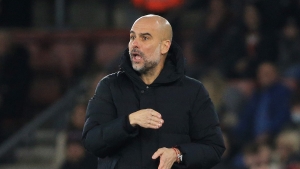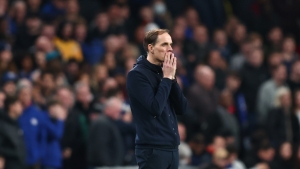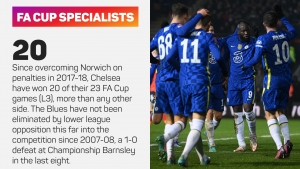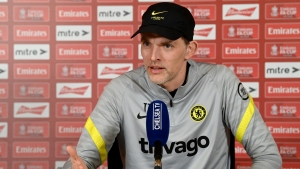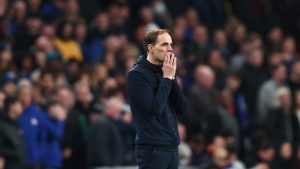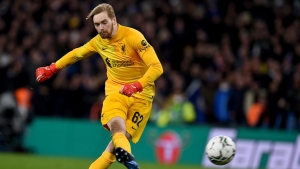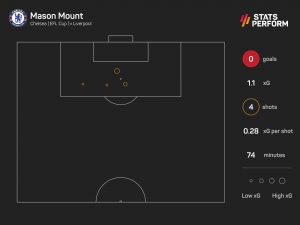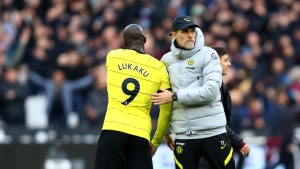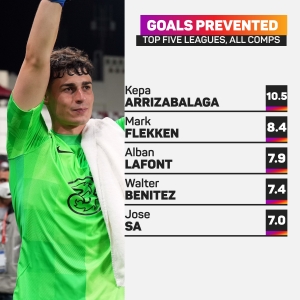It is not uncommon for second-choice goalkeepers to be given minutes in the early rounds of cup competitions, only for the number one to return when it comes down to the crunch.
Yet for Kepa Arrizabalaga, that will almost certainly not be the case.
Signed in 2018 from Athletic Bilbao for £71.6million (€80m), which is still a record fee for a goalkeeper, Kepa undoubtedly struggled in his first few seasons at Stamford Bridge.
Indeed, Kepa's form was so worrying that Chelsea, then managed by club great Frank Lampard, decided to sign Edouard Mendy from Rennes in 2020, just two years after shelling out that record-setting fee.
Yet since Thomas Tuchel came into the club, Kepa has been given a new lease of life.
While Mendy has solidified his place as the number one, Kepa has stepped up when called upon.
The nervous, shaky youngster has made way for a player who once again seems confident in his own ability and his right to play for the European champions.
With Mendy staying as the first choice in the Premier League and Champions League, for now, Kepa has nailed down a starting spot in the domestic cup competitions, and looks set to start against Liverpool in the EFL Cup final on Sunday.
Should he turn in another match-winning display, as he did in the UEFA Super Cup last year, then Tuchel may well have a decision to make on just who is his first choice after all.
What went wrong?
Kepa's move to Chelsea came in the same window that Liverpool had splashed out on Alisson, and there was plenty of expectation on both goalkeepers.
But while Alisson thrived under the pressure, going on to help Liverpool win the Champions League and then the Premier League a year later, Kepa crumbled.
The Spaniard also made headlines when he refused to be subbed off before a penalty shoot-out in, ironically, the EFL Cup final. Maurizio Sarri's side lost to Manchester City.
Across 36 league appearances that season, Kepa conceded 39 goals. Eight of these came from shots outside the box, with only five goalkeepers conceding more long-range efforts. His overall save percentage was 67.77, ranking him 15th in the competition.
Another way to assess the quality of Kepa's shot-stopping is by using the expected goals on target (xGOT) model to calculate the number of goals Kepa actually prevented. xGOT measures not just the quality of a chance (xG) but the quality of the attempt itself.
Kepa's Premier League xGOT figure for 2018-19 was 37.1. Minus the 39 goals he conceded, Kepa essentially allowed in just over two more goals than the numbers would suggest (-1.9).
In comparison, Alisson finished the season having prevented 5.5 goals in the league through the quality of his saves, while West Ham's Lukasz Fabianski, for example, had an outstanding figure of 12.9.
Yet it was in 2019-20 that Kepa's form truly dropped off. He conceded 47 times from 33 league appearances, with only seven goalkeepers allowing more goals. His save percentage of 53.47 was the poorest in the league, out of shot-stoppers to play at least 10 times, while his goals prevented figure was -10.7 (including penalties, but excluding own goals).
Chelsea claimed a top-four place and reached the FA Cup final, yet it was Willy Caballero, not Kepa, who helped them get to a Wembley showdown and, at the start of 2020-21, they drafted in Mendy from Rennes.
Turning point
Things hardly improved for Kepa at the start of 2020-21. Across the Premier League season, no goalkeeper made more errors leading to goals than the Spain international, who committed three such mistakes in just seven appearances.
All of those mistakes came in his first three league appearances of the season, and he did not feature again in the top flight under Lampard, next playing in February. He made four saves, including an impressive stop from Joe Willock late on, as Tuchel's team defeated Newcastle United 2-0.
That, perhaps, was the start of Kepa's resurgence. Chelsea again reached the final of the FA Cup, and again lost - this time to a Youri Tielemans stunner for Leicester City - but Kepa played in all six of those cup matches.
However, the true turning point came in August's Super Cup. Tuchel's side triumphed 6-5 on penalties over Europa League winners Villarreal following a 1-1 draw in Belfast, and Kepa was the hero.
In contrast to that 2019 EFL Cup final, Kepa was the goalkeeper brought on specifically for penalties this time, and he denied Aissa Mandi and Raul Albiol to ensure victory.
Back at his best?
Perhaps Kepa will need to move on to be a first-choice goalkeeper once again. After all, at 27 he can no longer be counted as a youngster, and as it stands Mendy is still Tuchel's number one.
Though Kepa will get his chance in Sunday's EFL Cup final, surely, to help Chelsea claim a third trophy of the season, following the Super Cup and the Club World Cup, in which he featured in the semi-final.
Since that Super Cup success, Kepa has been a consistent performer. In his 13 games across all competitions, he has conceded just eight goals, keeping six clean sheets.
Those eight goals have come from an xGOT of 18.5, meaning Kepa's "goals prevented" figure is now way into the black, at 10.5.
In fact, that figure is the best of any goalkeeper in Europe's top five leagues in all competitions, proving just how much Kepa has come on over the course of the last year.
Mendy, in comparison, has stopped just over three goals with his saves, while Kepa also holds a better save percentage (83.7 to Mendy's 77.4), and he has established himself as worthy competition.
It may not be what Chelsea had in mind when they paid that world record fee in 2018, but if he helps them to another piece of silverware on Sunday, it would be hard to argue he is not starting to prove his worth.



























